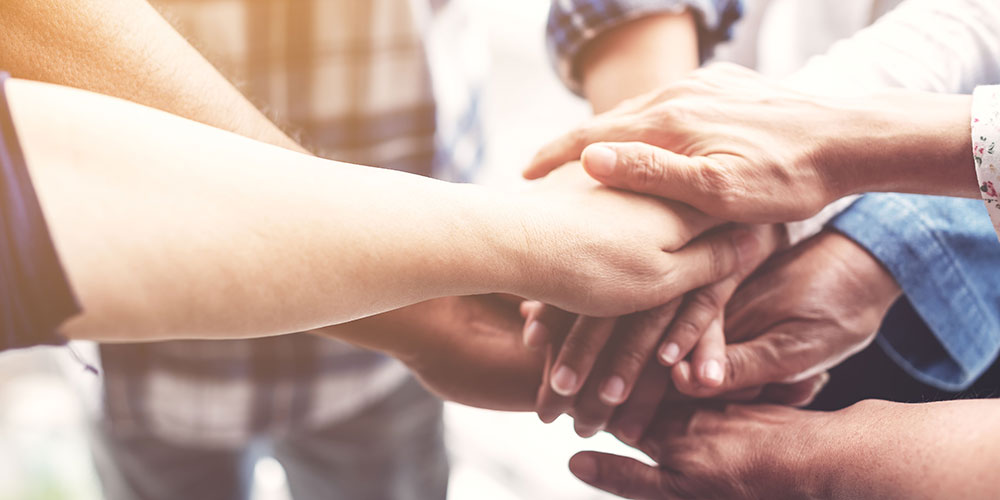It is not uncommon in our modern society to refer to the concept of community, but what does it actually mean? If we simply look at the word, (although originally derived from the Latin loosely meaning joint obligation) you would certainly be forgiven in believing it was derived from a blend of the words common and unity, so in general terms it is a group of people who have something in common that gives them a sense of unity.
The dictionary definition describes community as ‘a group of individuals living in a specific location or having specific characteristics in common’. However socially and emotionally it can be so much more important. Being a part of a community offers us the feeling that we are a part of something greater than ourselves, it provides a forum to share personal experiences, maintain support for each other and an opportunity to help improve our environment. Overall, it is a feeling that people within the community matter to one another, a shared belief that our needs will be met through commitment and togetherness, a sense of belonging.
There are generally considered to be 5 key bases for the formation of a community; geography, interest, practice , action and circumstance. However communities are interchangeable, diverse and vary widely in size.
Geographically a community could be anything from neighbouring families to a country as a whole. We can attribute a sense of belonging to a street, the town we live in, the place we were born or even our nationality.
Another obvious community can be created through a common interest or passion, anything from a local group of knitting enthusiasts to the worldwide support for a sports team.
We also regularly form communities when we come together to practice the same activity, a community of master builders or accountants for example will find familiarity through their profession.
Individuals also achieve a sense of community through a shared reason for action, whether that is climate change or gender equality, it is an interaction with a mutual desire for change.
Lastly, though by no means leastly, is a sense of community we have all recently experienced, one due to circumstance, when people are brought together by external events or situations, like COVID-19.
Unfortunately, a lack of social connection can have a serious effect on our overall health. An early study on the impact of the COVID-19 pandemic showed that loneliness was one of the factors with the greatest influence on people’s mental health. Without community people are prone to feeling isolated and lonely which can impact their overall health, not just their emotions.
Studies show that those lacking strong social connections could be more likely to suffer from high levels of anxiety and therefore are at higher risk of suicide and stress-related illness. Research consistently links the lack of social connection with health conditions such as heart disease, high blood pressure, immune disorders and cancer. Social isolation can also impact mental health and well-being, so strong social ties are crucial to our mental health as they help lower stress and anxiety and allow people to thrive.
As feelings of isolation, anxiety and depression have increased during the pandemic, many more people are seeking meaningful connections to help them cope. Building community spaces, creating social connections and offering support is one of the most vital functions communities perform, helping people feel better about themselves and, in turn, improving mental health.
Through community participation we feel a sense of empowerment, purpose and belonging, which can enable us to influence positive change. Having an opportunity to share stimulates innovation and growth which, apart from the personal benefits of gaining knowledge and insight, also contributes to the community’s greater worth. By immersing ourselves in a group of individuals we are exposed to a diversity of ideas, viewpoints, and personalities which can help drive growth and performance. The reinforcement from our peers can also be an effective learning tool to encourage beneficial attitudes and provide motivation. Belonging to a strong community offers us a form of support that hopefully provides a positive experience and an enjoyable sense of camaraderie.
Coming together physically or virtually and finding points of connection with others builds valuable relationships and participating in moments of celebration can leave us feeling engaged and refreshed. These positive emotions that encourage a deeper sense of belonging and security can help lower stress and anxiety. Developing relationships and effective communication with fellow members is an exercise in listening and developing rapport, being part of a community gives us the opportunity to share in a subject we’re passionate about, spreading confidence and encouragement.
There are so many positive aspects to being part of a group or community. Ultimately, communities give people a natural support group that helps them cope with difficult challenges, band together to solve problems, vent frustrations and celebrate highlights. Providing unique opportunities for us to learn from each other and give support and encouragement are an invaluable part of joining forces with our peers and ultimately nurturing a rewarding and engaging community. With so much stress in the busy world we live in, there has never been a more important time to seek a supportive group to encourage our positive well-being.
Repair Cafes are the perfect example of a community, a meeting place for people that want to achieve the same goal. Their engaging community is where members come to share interests, learn from their peers, celebrate and commiserate in a supportive environment and progress their wellbeing journey together. At E&G we pride ourselves on knowing a lot about Repair Cafes, having worked with most of them to understand and provide those communities’ insurance needs for a while now. Should you need us it would be our pleasure to offer you our expertise to support your community, after all insurance is our passion.

